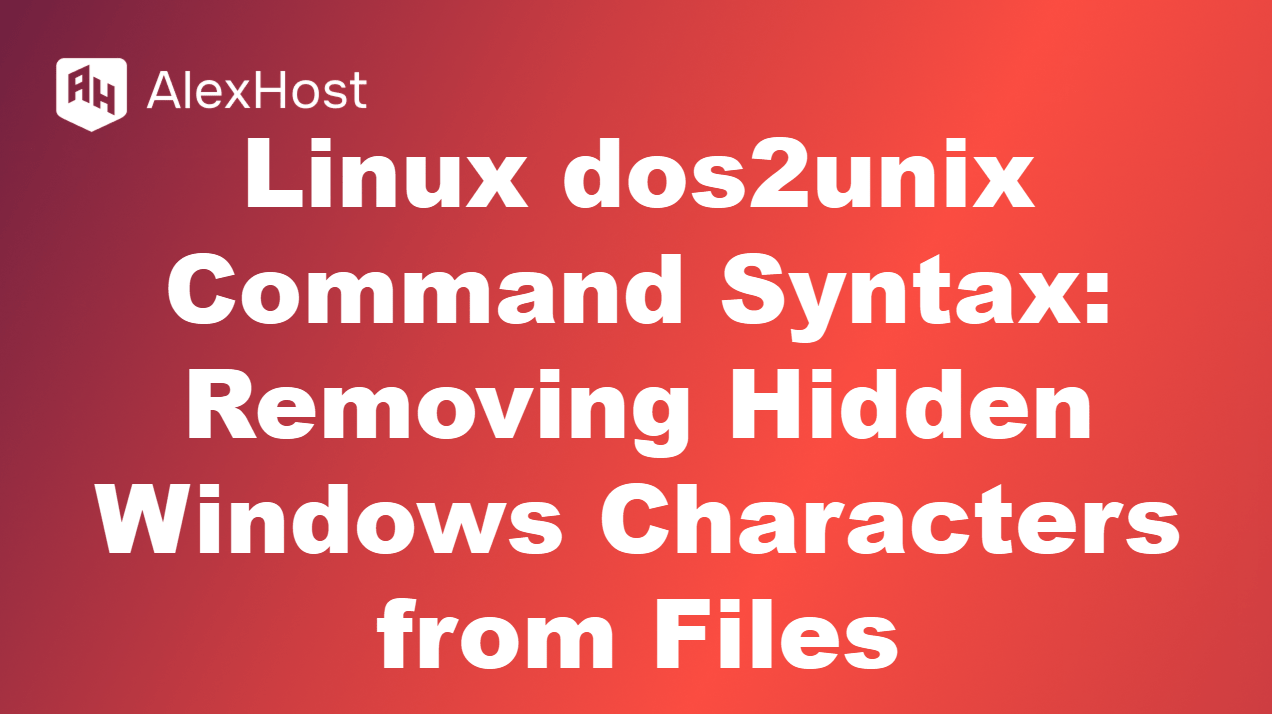Host Your Website Seamlessly with AlexHost VPS Why choose AlexHost for web hosting? Web hosting makes your website accessible online, storing files and delivering them to users. AlexHost’s VPS with NVMe SSD storage, LiteSpeed, full root access, and DDoS protection offers a fast, secure, and scalable hosting solution. This guide explains web hosting and how […]
Edit the Hosts File: Your Local DNS Superpower What’s the hosts file, and why tweak it? The hosts file is your computer’s secret map, linking domain names (like example.com) straight to IP addresses without asking the internet’s DNS servers. It’s a quick fix for testing sites locally, blocking distractions, or dodging DNS glitches. Whether on […]
A 500 Internal Server Error is one of the most common and frustrating errors you can encounter when visiting a website. It indicates that something went wrong on the server, but the server is unable to provide more specific details. This error can occur for various reasons, ranging from server misconfigurations to issues with the […]
Master DNS Resource Records on Your AlexHost VPS Why manage DNS on AlexHost? DNS resource records are the backbone of internet navigation, linking domains to IPs, email servers, and services. AlexHost’s VPS, with root access, NVMe speed, and DDoS protection, provides a secure platform to manage DNS for your website or app. This guide explains […]
A domain name is the human-readable address used to access websites on the internet. It serves as the online identity of a website and makes it easier for people to find your site without needing to remember long numerical IP addresses, which are used by computers to identify and locate servers. In simple terms, a […]
An operating system (OS) is the fundamental software that manages the hardware and software resources of a computer or device. It acts as an intermediary between the user, the applications, and the hardware, enabling them to work together efficiently. Without an operating system, it would be impossible for a computer to function properly or for […]
The Domain Name System (DNS) is an essential part of how the internet works. It acts as a translator between human-friendly domain names (like example.com) and computer-friendly IP addresses (like 192.168.1.1). DNS makes it possible for us to browse the web easily without needing to memorize long strings of numbers. In this article, we’ll explain […]
When working with text files between Windows and Linux systems, you may encounter issues due to differences in line endings. Windows uses a carriage return and line feed (CRLF) sequence (\r\n) to denote the end of a line, while Linux uses just a line feed (LF) (\n). This can lead to formatting problems and unexpected […]
Restarting services is a common task for system administrators and users managing Linux servers. Whether you need to apply changes to a configuration file, resolve issues, or simply refresh a service, doing so from the command line is efficient and effective. This article will guide you through the process of restarting services on various Linux […]
ClamAV is a popular open-source antivirus engine designed to detect and remove various types of malware, including viruses, trojans, and other malicious software. It is widely used on Linux-based systems but also supports other operating systems like macOS and Windows. One of its key features is the ability to scan files, email servers, and web […]
















